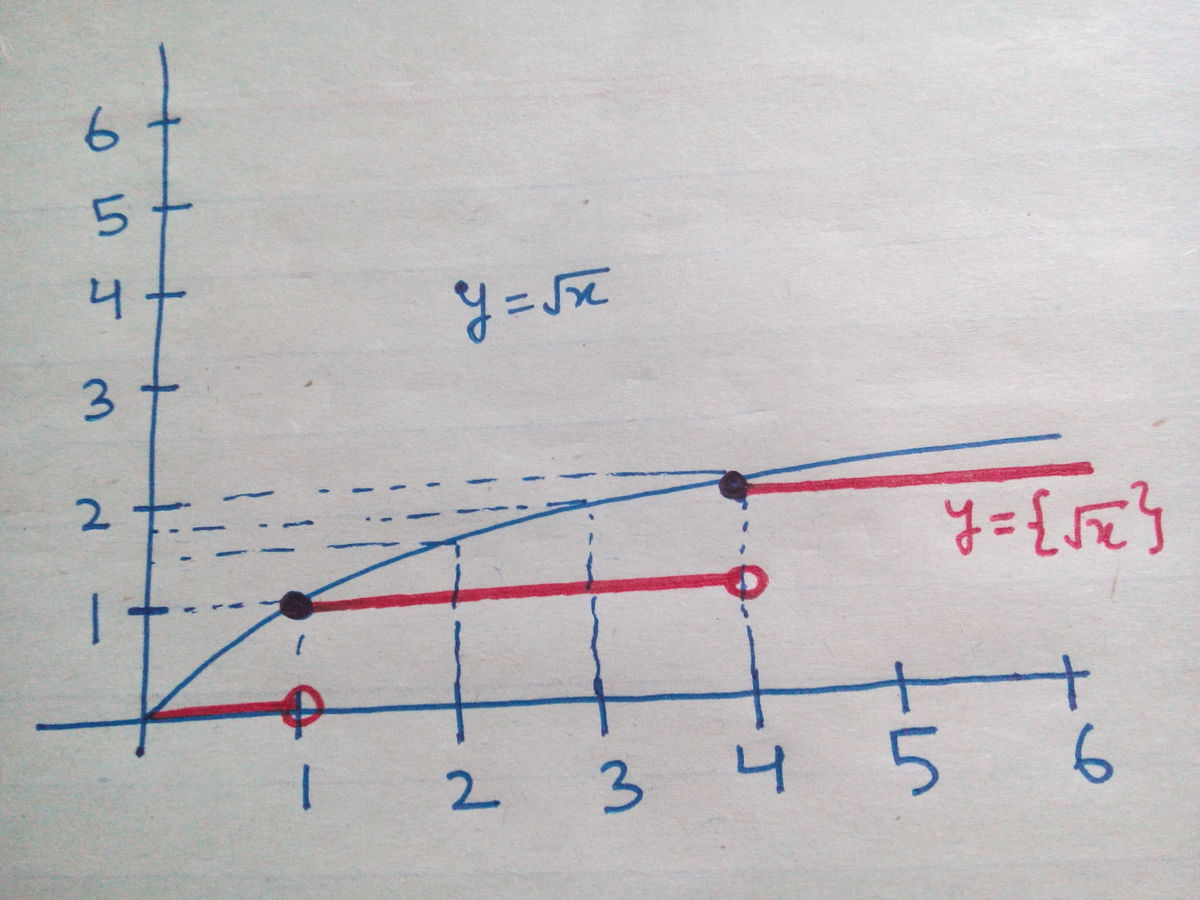Generalizing floor summations
⌊ 1 ⌋ + ⌊ 2 ⌋ + ⌊ 3 ⌋ + ⋯ + ⌊ ( n + 1 ) 2 − 1 ⌋ = ?
This section requires Javascript.
You are seeing this because something didn't load right. We suggest you, (a) try
refreshing the page, (b) enabling javascript if it is disabled on your browser and,
finally, (c)
loading the
non-javascript version of this page
. We're sorry about the hassle.
2 solutions
The very same method.
Nice solution , did the same ! Btw , there is another shortcut , put n = 2 which gives summation till floor of root 8 i.e = 13 , so just put 2 in given options and simply choose the option which gives 13 as the answer ! @Rishabh Cool
Log in to reply
Good for examinations where time is key, I do that way many times but when at home we have quite some time so we can do it in a proper manner which will benefit us.
Unbeleivable. I just needed to simplify the expression I got a little bit. But my laziness killed me yet again and I hit the wrong option.
Log in to reply
Shreyash Please try to solve this
Log in to reply
seems impossible but i will give it a try. Were you able to solve it?
Log in to reply
@Shreyash Rai – Nope, but got the trick after I gave up.
Log in to reply
@Department 8 – oh man i just realized tommorow is jstse. well atleast let me study one day for it.
@Department 8 – got it. fine question that was.
S = ⌊ 1 ⌋ + ⌊ 2 ⌋ + ⌊ 3 ⌋ + ⌊ 4 ⌋ + ⌊ 5 ⌋ + ⌊ 6 ⌋ + ⌊ 7 ⌋ + . . . + ⌊ ( n + 1 ) 2 − 1 ⌋ = 1 × ( 2 2 − 1 2 ) 1 + 1 + 1 + 2 × ( 3 2 − 2 2 ) 2 + 2 + 2 + 2 + 2 + 3 × ( 4 2 − 3 2 ) 3 + 3 + 3 + 3 + 3 + 3 + 3 + 3 + 3 + . . . n = k = 1 ∑ n k [ ( k + 1 ) 2 − k 2 ] = k = 1 ∑ n ( 2 k 2 + k ) = 2 k = 1 ∑ n k 2 + k = 1 ∑ n k = 3 n ( n + 1 ) ( 2 n + 1 ) + 2 n ( n + 1 ) = 6 n ( n + 1 ) ( 4 n + 2 + 3 ) = 6 n ( n + 1 ) ( 4 n + 5 )
Edit:In figure, ceiling function is there instead of fractional part S
=
1
+
1
+
1
+
2
+
2
+
2
+
2
+
2
+
3
+
3
+
3
+
3
+
3
+
3
+
3
+
3
+
.
.
=
3
(
1
)
+
5
(
2
)
+
7
(
3
)
+
9
(
5
)
+
.
.
.
.
.
=
i
=
1
∑
n
(
2
i
+
1
)
i
=
2
i
=
1
∑
n
i
2
+
i
=
1
∑
n
i
=
2
(
6
n
(
n
+
1
)
(
2
n
+
1
)
)
+
2
n
(
n
+
1
)
=
6
n
(
n
+
1
)
(
4
n
+
5
)
S
=
1
+
1
+
1
+
2
+
2
+
2
+
2
+
2
+
3
+
3
+
3
+
3
+
3
+
3
+
3
+
3
+
.
.
=
3
(
1
)
+
5
(
2
)
+
7
(
3
)
+
9
(
5
)
+
.
.
.
.
.
=
i
=
1
∑
n
(
2
i
+
1
)
i
=
2
i
=
1
∑
n
i
2
+
i
=
1
∑
n
i
=
2
(
6
n
(
n
+
1
)
(
2
n
+
1
)
)
+
2
n
(
n
+
1
)
=
6
n
(
n
+
1
)
(
4
n
+
5
)